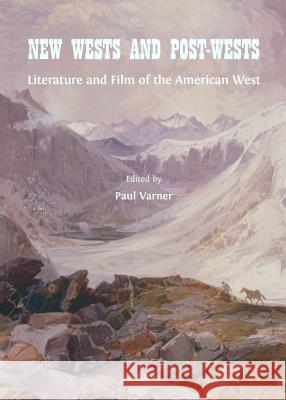New Wests and Post-Wests: Literature and Film of the American West » książka
New Wests and Post-Wests: Literature and Film of the American West
ISBN-13: 9781443849647 / Angielski / Twarda / 2013 / 288 str.
The writers of these chapters are often working with changing assumptions about literary and media interpretations of an American West. Here we see critical approaches to a West that never was, a West of myth so enduring that the myth dominates nearly all artistic representation about this place that never was. In this collection, we see critical approaches to a New West, a West that is a state of mind, not a geographical place but a mythic space with no boundaries and no political inevitabilities. These New Western studies accept the idea of a West that includes Canada, Mexico, Alaska, and, in the case of the US, every geographic and historical point west of the historic founding settlements. The West we study today is a post-West, an idea of the West past the traditional views of an old West dominated by white US nationalism and gendered as uncompromisingly masculine. The idea itself of a single West no longer holds validity. We now understand that all renderings of the West are renderings of multiple Wests; Wests constructed by American nationalists, Wests constructed by EuroAmerican writers and filmmakers, Wests constructed by native peoples, or Wests constructed outside the geographical boundaries of the US. This collection presents an eclectic array of new scholarship ranging freely over the New Wests and Post Wests, dealing with issues such as the literature of a 1950s California West; eco-crime genre fiction; the West of Edward Dorn and the Beat Movement; images of prostitution in California Gold Rush literature; European perspectives on film representations of the first peoples; the six shooter and the American West; German Westerns and Italian Westerns; The Authentic Death of Hendry Jones by Charles Neider; and films such as The Treasure of Sierra Madre, Into the Wild, There Will Be Blood, and The Last Picture Show. A unique aspect of this collection is the range of writers interpreting the American West in film and literature; besides those writing from within the United States, five of the writers provide international perspectives from the United Kingdom, and the Universities of Tunis, Vienna, and Rome. Each chapter includes a review of scholarship on its subject and an extended bibliography for further research.











